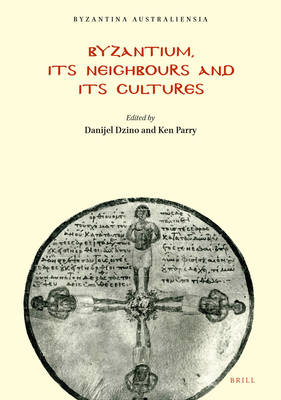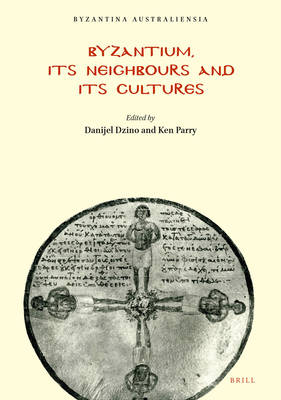
- Afhalen na 1 uur in een winkel met voorraad
- Gratis thuislevering in België vanaf € 30
- Ruim aanbod met 7 miljoen producten
- Afhalen na 1 uur in een winkel met voorraad
- Gratis thuislevering in België vanaf € 30
- Ruim aanbod met 7 miljoen producten
Zoeken
Byzantium, Its Neighbours and Its Cultures
€ 108,45
+ 216 punten
Omschrijving
Byzantium was one of the longest-lasting empires in history. Throughout the millennium of its existence, the empire showed its capability to change and develop under very different historical circumstances. This remarkable resilience would have been impossible to achieve without the formation of a lasting imperial culture and a strong imperial ideological infrastructure. Imperial culture and ideology required, among other things, to sort out who was ʻinsiderʼ and who was ʻoutsiderʼ and develop ways to define and describe ones neighbours and interact with them.
There is an indefinite number of possibilities for the exploration of relationships between Byzantium and its neighbours. The essays in this collection focus on several interconnected clusters of topics and shared research interests, such as the place of neighbours in the context of the empire and imperial ideology, the transfer of knowledge with neighbours, the Byzantine perception of their neighbours and the political relationship and/or the conflict with neighbours.
There is an indefinite number of possibilities for the exploration of relationships between Byzantium and its neighbours. The essays in this collection focus on several interconnected clusters of topics and shared research interests, such as the place of neighbours in the context of the empire and imperial ideology, the transfer of knowledge with neighbours, the Byzantine perception of their neighbours and the political relationship and/or the conflict with neighbours.
Specificaties
Betrokkenen
- Uitgeverij:
Inhoud
- Aantal bladzijden:
- 304
- Taal:
- Engels
- Reeks:
- Reeksnummer:
- nr. 20
Eigenschappen
- Productcode (EAN):
- 9781876503017
- Verschijningsdatum:
- 1/01/2014
- Uitvoering:
- Paperback
- Formaat:
- Trade paperback (VS)
- Afmetingen:
- 175 mm x 251 mm
- Gewicht:
- 544 g

Alleen bij Standaard Boekhandel
+ 216 punten op je klantenkaart van Standaard Boekhandel
Beoordelingen
We publiceren alleen reviews die voldoen aan de voorwaarden voor reviews. Bekijk onze voorwaarden voor reviews.










